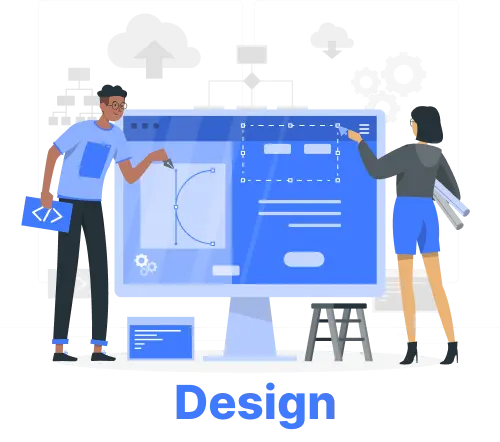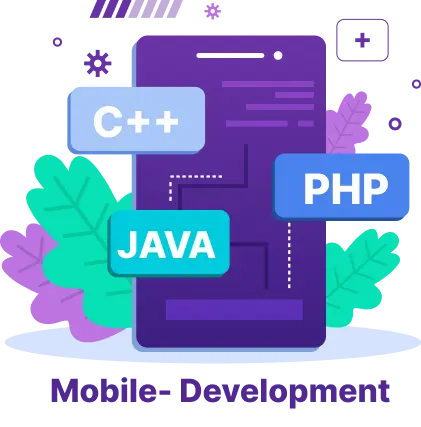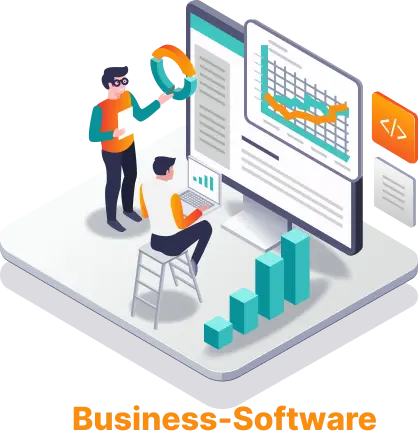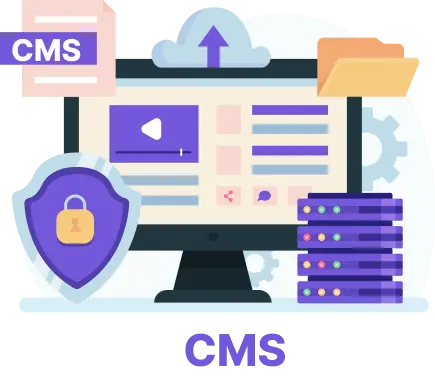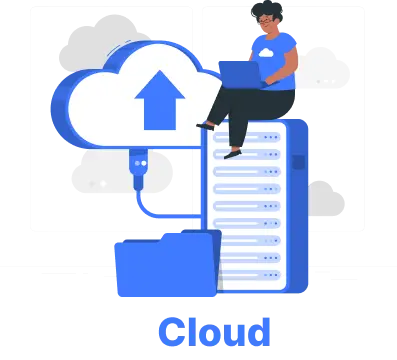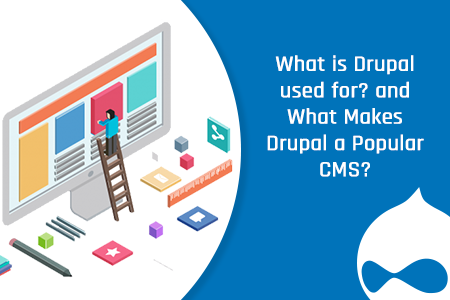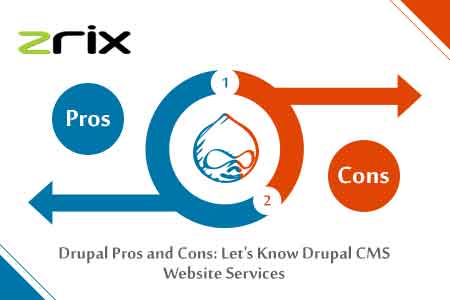Why Drupal Terminates Understanding the Need for Upgrades
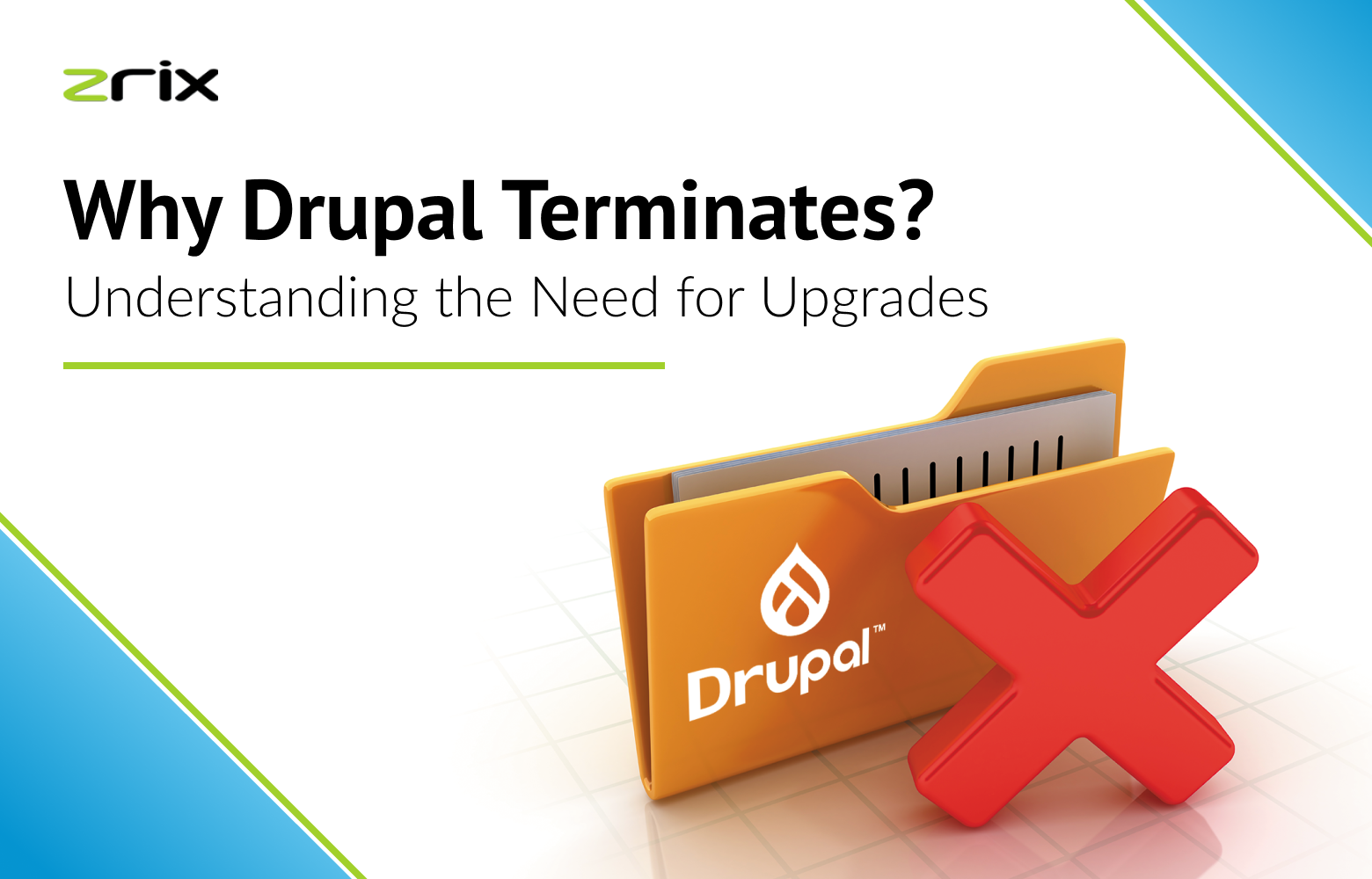
Introduction
Drupal, a leading content management system (CMS). has been a vital platform for building websites, applications, and digital experiences. One aspect that often raises questions among users is the termination of old versions. We delve into the reasons behind Drupal's decision to end support for older versions. Why upgrading is essential for both security and functionality.
Drupal, a renowned content management system (CMS), has evolved over the years. with each new version introducing enhancements, improvements, and features. We'll delve into the key differences between old and new versions of Drupal. Highlighting the advancements that make upgrading a worthwhile try for users and developers.
Table of Content
Security Vulnerabilities
One of the primary reasons for terminating old Drupal versions is security. As technology evolves, so do cyber threats. By discontinuing support for these versions. Drupal encourages users to upgrade to more secure versions. that have patches and updates to protect against emerging threats. Newer versions leverage advancements in technology, architecture. Optimization techniques to deliver better performance and scalability. From improved caching mechanisms to optimized database queries these enhancements contribute. Faster page load times, enhanced reliability, and better scalability for Drupal sites. Performance and scalability are critical considerations for websites and applications. Especially as they grow in complexity and traffic.
User Interface and Experience
One of the noticeable differences between old and new versions of Drupal lies in the user interface (UI) and experience (UX). Older versions often featured complex interfaces and navigation. Which could be daunting for beginners and non-technical users. In contrast, newer versions, such as Drupal 8 and beyond. Have introduced streamlined interfaces, improved usability, and intuitive workflows. These enhancements make content creation, management, and site administration more accessible.
Software Maintenance
Maintaining many versions of a software platform requires significant resources, time, effort, and finances. Supporting outdated versions can divert resources away from. Developing new features and improving the user experience. By focusing on the latest versions, Drupal can divide resources more. Ensuring better support and development for the community.
Mobile Responsiveness
The proliferation of mobile devices has led to an increase in the use of responsive design. To ensure that the user experience is optimized across a variety of screen sizes and devices, need to. It may be the case that older versions of Drupal do not provide robust support for responsive design. To mobile responsiveness, it requires extra customization and development effort on the part of the developer. Newer versions, but, focus on mobile-first approaches, offering built-in responsive themes. Layouts and features that are compatible with different devices, enhancing accessibility and usability.
Performance and Compatibility
As a result, websites running on outdated versions may experience performance issues. Upgrading to newer versions ensures better performance, compatibility. The ability to leverage the latest advancements in web development. While older versions of Drupal may have basic accessibility features, newer versions. Have made significant strides in enhancing accessibility and inclusivity. This includes adherence to WCAG (Web Content Accessibility Guidelines), semantic markup. keyboard navigation improvements, and support for assistive technologies. Drupal empowers organizations to create inclusive digital experiences that reach a broader audience.
Community Engagement and Innovation
Drupal is an open-source platform driven by a vibrant community of developers, contributors, and users. Encouraging users to upgrade to newer versions fosters community engagement and collaboration. It enables developers to focus on innovating and improving the platform. Driving enhancements in functionality, user experience, and accessibility. By staying up-to-date with the latest Drupal releases. users can contribute to the evolution of the platform and enjoy collective advancements.
Modular Architecture and Extensibility
Drupal's modular architecture allows for flexibility and extensibility. Enabling developers to customize and extend functionality according to specific requirements. Newer versions of Drupal, particularly Drupal 8 and above. have embraced a more modern and object-oriented approach to module development. Leveraging Symfony components and embracing industry standards such as PSR (PHP Standards Recommendations). This modular architecture enhances code reusability, maintainability and interoperability. Making it easier for developers to build and extend Drupal sites with greater.
Long term Sustainability
For Drupal to remain a sustainable and future-proof solution. It is crucial to encourage users to adopt newer versions and embrace continuous. By phasing out older versions, Drupal ensures a clear path forward for users, developers, a. This approach promotes long-term sustainability by facilitating a streamlined development process. Reducing technical debt, and aligning with industry best practices.
Conclusion
In conclusion, the decision to end old versions of Drupal is driven by the need to rank security. Maintainability, performance, innovation, and long-term sustainability. Upgrading to newer versions not only ensures better security and functionality. Also enables users to contribute to the growth and evolution of the Drupal ecosystem. By embracing upgrades, users can stay ahead of emerging challenges. leverage the latest advancements. and unlock the full potential of Drupal as a powerful and versatile CMS.
The differences between old and new versions of Drupal reflect the platform's evolution. commitment to innovation, usability, performance, accessibility, and extensibility. Upgrading to newer versions not only unlocks a plethora of features and improvements. but also ensures that websites and applications remain competitive, secure, and future-proof. Whether it's enhancing the user experience, improving performance, or embracing accessibility. Transitioning to newer versions of Drupal offers tangible benefits. for users, developers, and organizations alike.

